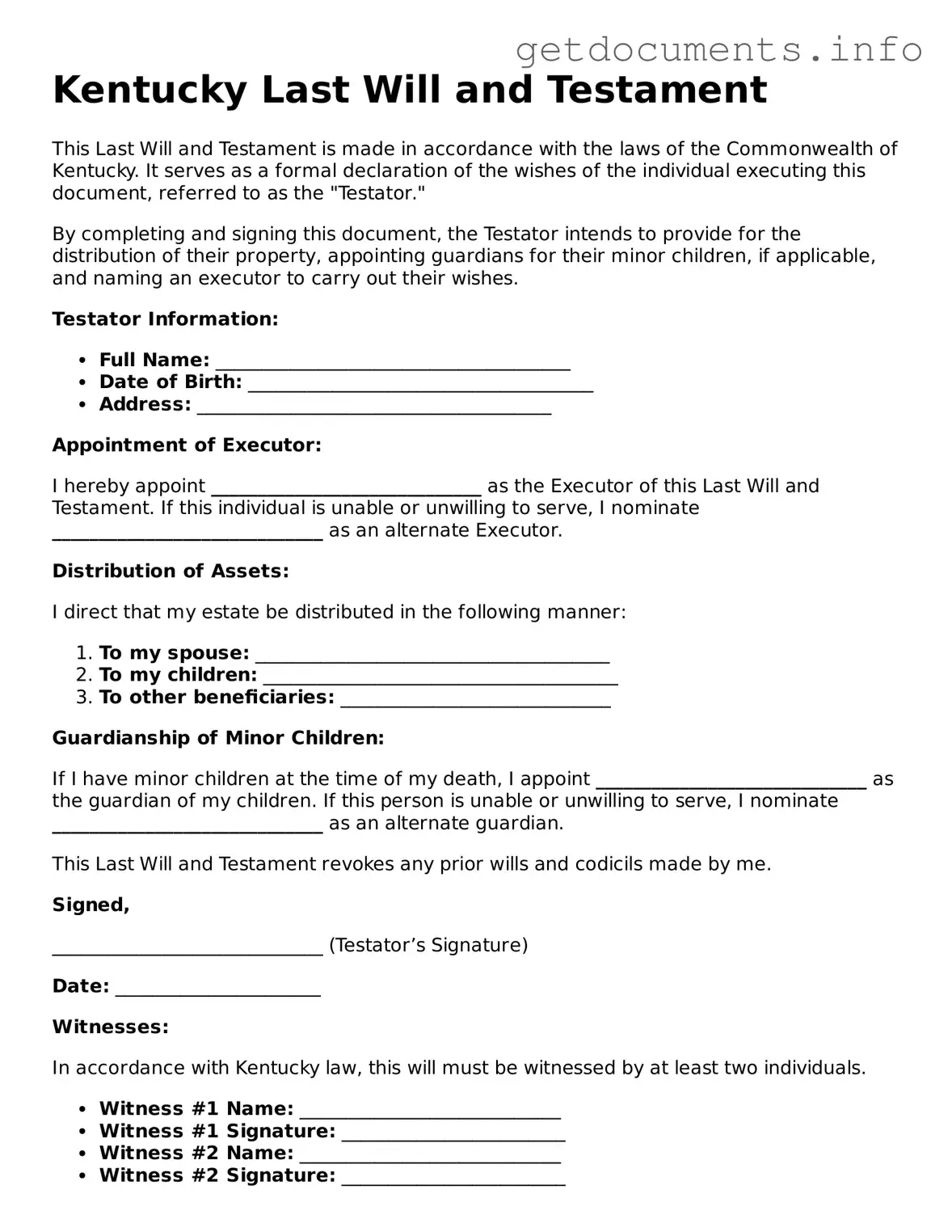Free Last Will and Testament Template for Kentucky
A Kentucky Last Will and Testament form is a legal document that outlines how an individual's assets and responsibilities should be distributed after their death. This essential form ensures that your wishes are honored and provides clarity to your loved ones during a difficult time. To get started on securing your legacy, consider filling out the form by clicking the button below.
Access Last Will and Testament Editor

Free Last Will and Testament Template for Kentucky
Access Last Will and Testament Editor
Got places to be? Complete the form fast
Fill out Last Will and Testament online and avoid printing or scanning.
Access Last Will and Testament Editor
or
⇩ PDF File
